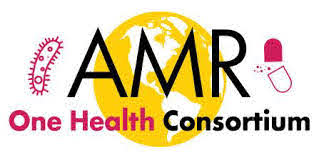Selected Current Projects
Advancing Impact Assessment for Socio-ecological Systems in Canada
In this new Partnership Development Project, funded by the Social Sciences and Humanities Research Council, with support from the Impact Assessment Agency of Canada, a team of researchers and partner organizations from across Canada will be engaged in a number of research and relationship-building activities designed to create openings for innovative thinking on impact assessment processes in Canada to support socio-ecological system resilience, by generating creative approaches to address a cluster of challenges: disciplinary boundaries across natural and social sciences; governance across jurisdictional and Indigenous/non-Indigenous boundaries; and inter-institutional collaborations.
REES Investigators: Dr. Debra J. Davidson, Dr. Kevin Jones, Dr. John Parkins

Alberta's Living Laboratory Project
Alberta's Living Laboratory Project is part of an interdisciplinary research program that involves researchers from the University of Alberta and Western University. Here at the UofA we are examining the best ways to secure drained wetland basins in rural landscapes in Alberta. Our team, in partnership with municipalities, counties and Ducks Unlimited Canada, is utilizing reverse auction mechanisms to examine the costs of basin securement. This information will be critical in the successful implementation of the new Alberta Wetland Policy.
Principal Investigator: Dr. Peter Boxall
The Antimicrobial Resistance (AMR) – One Health Consortium
This is a pan-Alberta collaborative platform focused on antimicrobial use and resistance research, policy, training, outreach, and commercialization. The AMR – One Health Consortium uses a transdisciplinary, multisectoral One Health approach, to promote self-sustaining clinical, epidemiologic, basic and social sciences, and translational research on AMR in Alberta that will be scalable to all of Canada.
REES Investigators: Dr. Xiaoli Fan, Dr. Ellen Goddard
ⴰⵔⵔⴰⵎⴰⵜ Ărramăt
A team of Indigenous organizations, governments, university researchers, and other resource people working together on research and action in support of the health and well-being of the environment and people. Arramat is working to strengthen Indigenous voices and capacities to document their knowledge about the importance of the whole environment (including biodiversity) to the health and well-being of their communities.

CONSERVE - (COordinating Nontraditional Sustainable watER Use in Variable climatEs)
A Center of Excellence at the Nexus of Sustainable Water Reuse, Food, and Health
Climate variability is placing severe stress on high-quality agricultural irrigation sources such as groundwater. As a result, water reuse and exploring nontraditional irrigation water sources (e.g., reclaimed water) have become national priorities for agricultural water security and the sustainable production of our food supply. At the same time, the recent Food Safety Modernization Act is shifting the focus of food safety from responding to foodborne contamination to preventing it. This places great responsibility on agricultural producers, who must meet stricter guidelines for the quality of irrigation water used on food crops. This presents a significant new gap: new sustainable on-farm solutions are needed so that agricultural producers can conserve groundwater through the safe use of nontraditional irrigation water sources." CONSERVE is an international collaborative effort including researchers from the University of Maryland (lead), the University of Delaware, the University of Arizona, New Mexico State University, the USDA, the Arava Institute and the University of Alberta.
Energy Transitions In Canada
Exploring the social, cultural and ethical dimensions of a changing energy landscape
This site summarizes research that is centered at the University of Alberta and Dalhousie University on the topics related to energy transition in Canada, including case study on wind energy development in Alberta, and hydroelectric dam projects across Canada. The site provides information on new and old projects, research articles, reports, media interviews, infographics and other materials that we use to communicate research results and promote energy transition in Canada.
The Network for Expertise and Dialogue for Impact Assessment (NEDIA)
This site hosts a Network of Expertise and Dialogue on Impact Assessment (NEDIA) that will enable us all to: (a) foster interdisciplinary collaboration among impact assessment scholars; b) build an online resource space allowing anyone interested in IA; (c) join in and strengthen the efforts of others to support collaborations between both Indigenous and non-Indigenous communities to the NGO, government and private sector practitioners in IA.
![]()
Tracking Change
Tracking Change is a multi-year social science research network of Indigenous communities, universities, governments and other organizations funded by the Social Sciences and Humanities Research Council of Canada and other partners including the Mackenzie River Basin Board (Parlee, Principal Investigator).
The project is focused on building capacity for documenting and sharing local and traditional knowledge about changes in the Mackenzie River Basin through community-based research projects, research networking activities, symposiums and multidisciplinary publications. The Mackenzie River Basin, like other major freshwater ecosystems globally is under significant stress from resource development as well as the effects of climate change. Graduate students and community partners are working together to document observations and experience of disturbances to fish, fish habitat, water levels and water quality.
Principal Investigator: Dr. Brenda Parlee
